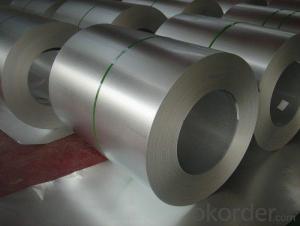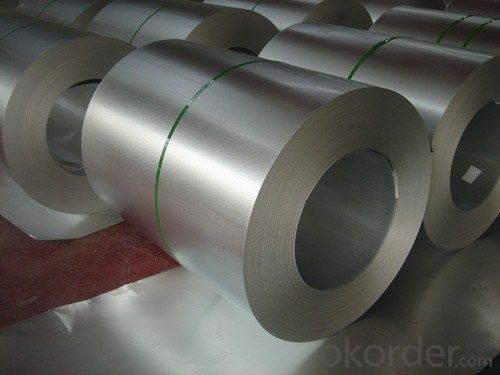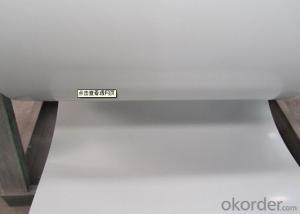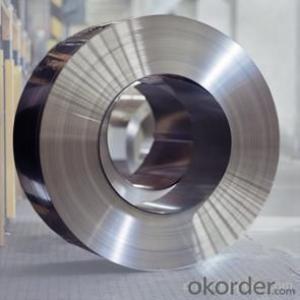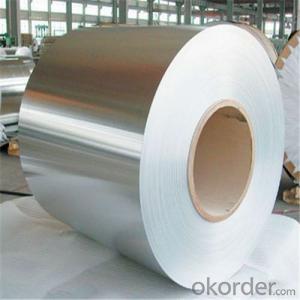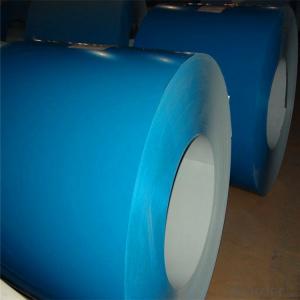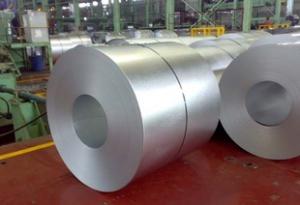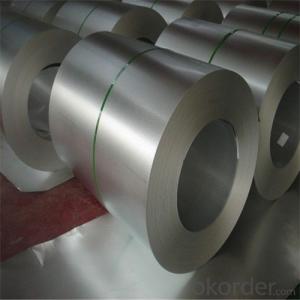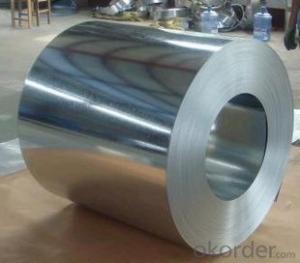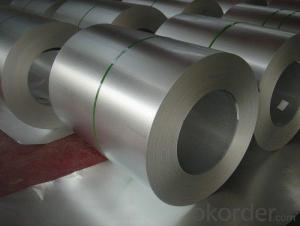Hot Dipped Aluzinc Coil
- Loading Port:
- China Main Port
- Payment Terms:
- TT OR LC
- Min Order Qty:
- -
- Supply Capability:
- -
OKorder Service Pledge
Quality Product, Order Online Tracking, Timely Delivery
OKorder Financial Service
Credit Rating, Credit Services, Credit Purchasing
You Might Also Like
AZ60 (60G/㎡), Regular Spangle, Anti-Finger PrintFOB CY SHANGHAI (USD/MT)COIL ID: 508MMWEIGHT WIDTH OF ROLL THICKNESS- 75 ton 122 cm 0.58mm 710- 25 ton 120 cm 0.58mm 715- 50 ton 89 cm 1 mm 725- 25 ton 100 cm 1 mm 695COIL WEIGHT: ABOUT 5MTSPAYMENT: 30% T/T DOWNPAYMENT AND BALANCE AGAINST INVOICE & PACKING LIST OR 100% LC AT SIGHTCARGO READINESS: 35 DAYS AFTER T/T DOWNPAYMENT OR LC ISSUING DATESHIPMENT: BY 20’GP CONTAINER
- Q: How are steel coils inspected for uniformity using statistical analysis?
- Steel coils are inspected for uniformity using statistical analysis by randomly selecting a sample of coils and measuring specific characteristics such as thickness, width, and weight. These measurements are then analyzed using statistical methods, such as mean, standard deviation, and control charts, to determine if the coils meet the desired uniformity criteria. This approach allows for efficient and reliable assessment of the overall quality and consistency of steel coils.
- Q: How are steel coils used in the manufacturing of lighting fixtures?
- Steel coils are used in the manufacturing of lighting fixtures as they provide a sturdy and durable structure for the fixtures. The coils are typically shaped and formed to create the desired shape and design of the lighting fixture, ensuring its strength and stability. Additionally, the steel coils can be coated or painted to enhance the aesthetics of the fixture, making it more visually appealing.
- Q: What are the different finishes available for steel coils?
- There are several different finishes available for steel coils, including hot rolled, cold rolled, galvanized, and coated finishes.
- Q: What is the cost of steel coils?
- The cost of steel coils can vary depending on factors such as the type of steel, the thickness and size of the coils, and market conditions. It is best to contact suppliers or check current market prices for accurate cost information.
- Q: How are steel coils processed for stamping or forming?
- Steel coils are processed for stamping or forming through a series of steps which generally include uncoiling, leveling, lubricating, feeding, stamping/forming, and cutting. Initially, the steel coil is uncoiled to remove any tension and then passed through a leveling machine to ensure a flat surface. Lubrication is applied to reduce friction during the stamping/forming process. The coil is then fed into a stamping or forming machine, which shapes it according to the desired design. Finally, the formed steel is cut into individual pieces, ready for further use or assembly.
- Q: How are steel coils used in the production of aerospace structures?
- Steel coils are used in the production of aerospace structures as they provide the necessary strength and durability required for the construction of aircraft components such as fuselage frames, landing gear, and engine mounts. These coils are processed and formed into various shapes and sizes to meet the specific requirements of each structural element, ensuring the safety and performance of the aerospace system.
- Q: I know that steel is generally iron with carbon and probably some other things in it, but I'm doing a research paper on architecture in Tokyo, and touching on the Tokyo Tower.The Tokyo work is larger than the Eiffel Tower by 12 meters, but lighter by 3000 tons. The only reason I can find for the difference in weight is that the Tokyo Tower is made of steel and the Eiffel Tower in made of iron, and since the Tokyo Tower is modeled after the Eiffel, there's really not a substantial difference in the amount of metal used....
- For the same volume of part, like a cubic inch, the weight is very close. If you base the comparison on strength, like a bar strong enough to hold XXX pounds, then the forged bar will be lighter, smaller still hold the weight.
- Q: What are the common tests performed on steel coils for quality assurance?
- Steel coils undergo various tests to ensure their quality and compliance with industry standards and customer needs. Dimensional inspection is a prevalent test that measures the length, width, and thickness of the coils to verify their specified dimensions. Any deviations in dimensions can indicate potential quality issues. A thorough visual inspection is also conducted to identify defects and surface imperfections like scratches, dents, or rust. This examination is crucial to identify any visual flaws that may affect the coils' performance or appearance. Furthermore, mechanical tests are carried out to assess the strength and durability of the steel coils. Tensile tests measure the maximum force the steel can withstand before breaking, determining its tensile strength, yield strength, and elongation properties. Another commonly performed mechanical test is the hardness test, which determines the steel's resistance to indentation, indicating its strength and toughness. These tests are typically conducted using methods like Rockwell, Brinell, or Vickers. Corrosion resistance is also evaluated as a vital aspect of steel coil quality. Tests such as salt spray or humidity tests simulate harsh environmental conditions to assess the steel's ability to resist corrosion. Lastly, chemical composition analysis is performed to ensure that the steel coils contain the necessary elements in the correct proportions. This analysis verifies that the steel meets the required chemical properties, which significantly impact its performance and suitability for specific applications. In summary, these common quality assurance tests guarantee that steel coils meet industry standards, customer requirements, and are suitable for their intended use.
- Q: What's the best way to clean granite countertops and stainless steel appliances? My countertops especially always look dull and streaky. Thanks!!!!!!!
- The best home remedy for that is shaving cream. Use men's shaving cream, not the gel, and not the ones with aloe, but regular shaving cream. It'll get the crud off and it'll shine it up for you. Just make sure you wipe it down really well, so there aren't any streaks.
- Q: Can steel coils be coated with magnetic materials?
- Yes, steel coils can be coated with magnetic materials. The coating process typically involves applying a thin layer of magnetic material, such as nickel or zinc, to the surface of the steel coils. This coating enhances the magnetic properties of the steel, making it more suitable for specific applications that require magnetism.
Send your message to us
Hot Dipped Aluzinc Coil
- Loading Port:
- China Main Port
- Payment Terms:
- TT OR LC
- Min Order Qty:
- -
- Supply Capability:
- -
OKorder Service Pledge
Quality Product, Order Online Tracking, Timely Delivery
OKorder Financial Service
Credit Rating, Credit Services, Credit Purchasing
Similar products
Hot products
Hot Searches
Related keywords
